#john willoughby
Text
Quarter-Final Two
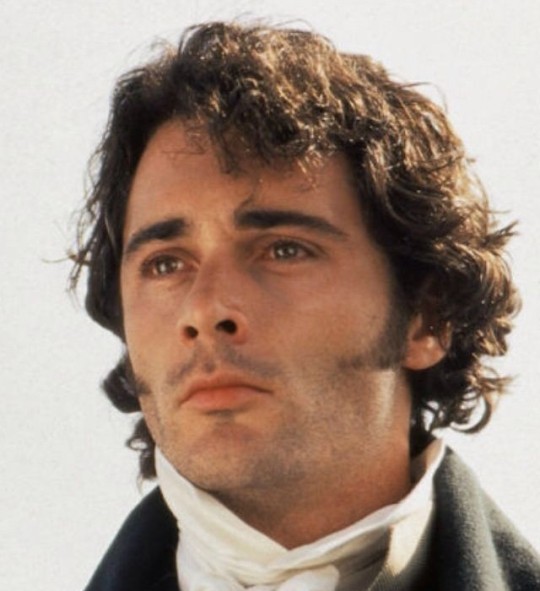
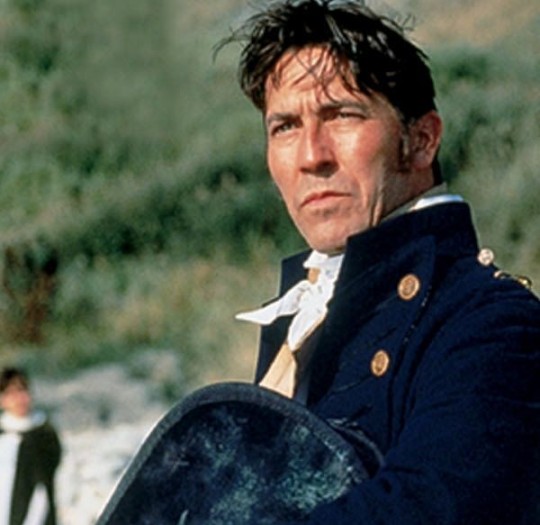
Propaganda...
Willougby (1995) :
95 Willoughby is testosterone on legs when he whisks Marianne into the cottage. Everyone is flummoxed by him and I love it. You feel Marianne’s pain and shock that this seemingly perfect man who was her soulmate is a cad. She questions her own judgment in everything wondering if any of it was real. Pretty perfect.
Look is the man a rake yes! But you can't be a rake if you're not hot and this is a hotness competition - out of all the men left in this tournament John Willougby is the man who knows the art of seduction. Look at how he takes off Marianne's shoe in this scene - think of how he would take off everything else. He runs through the rain - sweeps her off her feet and then asks to call - comes the next day with flowers and a pocket of SHakespeare sonnets - he may not be reliable but he is undoubtedly hot!
youtube
1995 Willoughby was so good that Emma Thompson married him
Captain Wentworth (1995):
Ciaran Hinds has that perfect ruggedness yet friendliness to his face that makes him the perfect charming Wentworth. And all of the longing that he manages to convey in his eyes is so hot.
Wentworth may be angry/resentful with Anne but in general he is charming and the best friend you could ever have. Ciaran gets the pleasant parts of his character and brings them out, while keeping a guarded coolness (protective camouflage) with Anne.
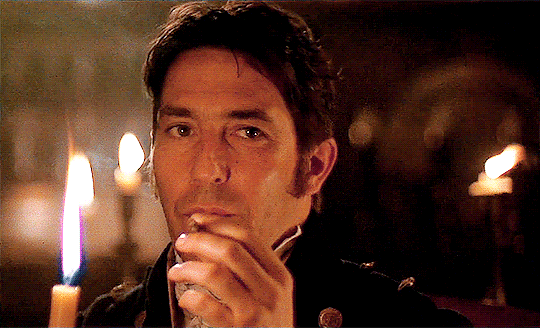
I dunno if this counts as propaganda or not, but Ciaran Hinds has a face that looks like it was jackhammered out of a shale cliff.
If a line like 'I am half agony...half hope' comes out of a face like that you know that man has a soul for poetry.
#quarter-finals#hotjaneaustenmenpoll#Willoughby#captain wentworth#john willoughby#sense and sensibility 1995#persuasion 1995#greg wise#ciaran hinds#persuasion#sense and sensibility#jane austen#Youtube
236 notes
·
View notes
Text
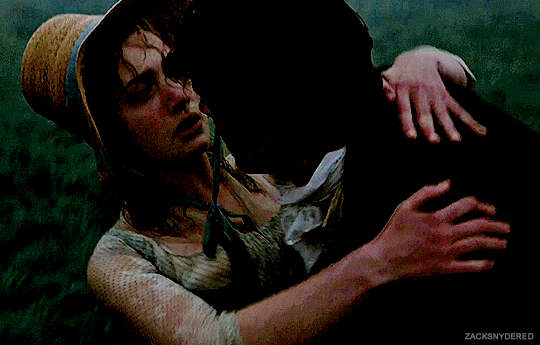

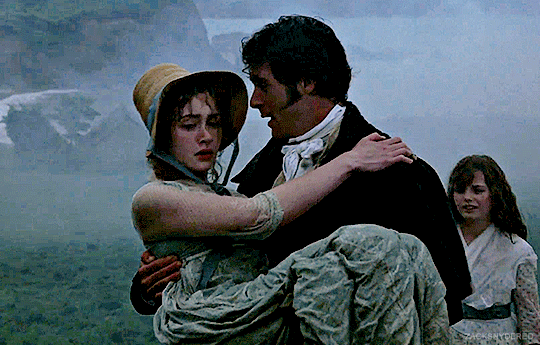
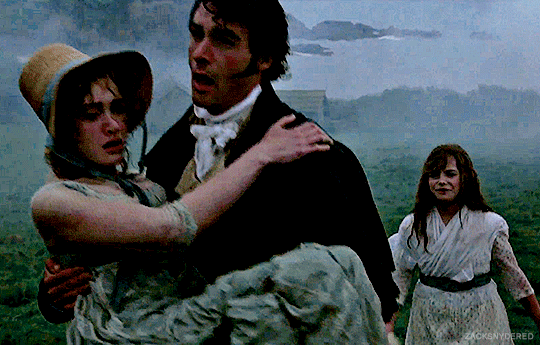
Sense and Sensibility
1995 ‧ Dir. Ang Lee
#sense and sensibility#kate winslet#senseandsensibilityedit#marianne dashwood#sense and sensibility 1995#perioddramaedit#perioddramasource#perioddramagif#cinemapix#filmtvedit#filmtvsource#mine.#edit: gifs.#film: sense and sensibility.#safarigirlsp#John Willoughby#Greg Wise
147 notes
·
View notes
Text




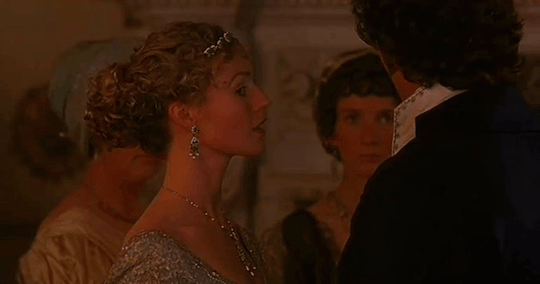
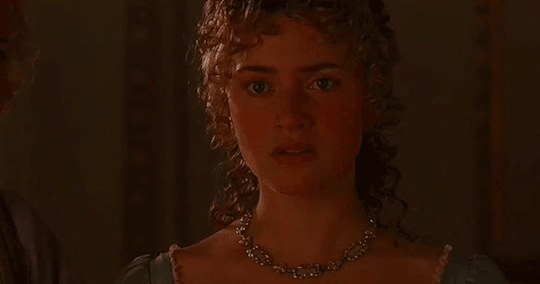

SENSE AND SENSIBILITY (1995)
dir. ang lee
#sense and sensibility 1995#jane austen#costume drama#period drama#perioddramaedit#perioddramagif#marianne dashwood#elinor dashwood#john willoughby#kate winslet#emma thompson#greg wise#my gifs#mine
85 notes
·
View notes
Note
I've been thinking about Willoughby, Crawford and Wickham and how they play somewhat similar roles in their respective novels without being the same character.
Crawford is bored and his flirting is just meant to entertain him. He doesn't care about what this does to the woman or potential consequences (mainly for her, his behaviour seems to be based on plausible deniability. He never openly courtes the Bertram sisters so he can't get shunned for that). He's indifferent rather than malicious.
Wickham is a gold digger, he likes the attention but would never do anything to hurt his potenial prospects (running away with Lydia seems to contradict that but 1) he refused to marry her (until he was bribed by Darcy) because he was still betting on finding a rich heiress and said it was Lydia's own fault for coming with him and 2) even though it was a fairly public stunt I doubt it would be talked about outside of Hertfordshire or Meryton (and why would Lady Catherine tell her friends when they don't know the Bennets or Wickham? Then again, who knows with Lady Catherine?).)
Somehow Willoughby feels like the worst of them all. He seduces girls because he has nothing else to do like Crawford but when he gets Eliza pregnant he dips and abandons her which feels malicious or at the very least cowardly. The way he leaves Marianne, ignores her and then his marriage is even more spineless.
He really is the most detestable out of them all.
(John Thorpe would be on this list but he has neither the charm, looks nor brains to seduce anyone. He is playing this game completely alone but convinced he's winning big time.)
I agree with you!
The big difference with Willoughby in my mind is how far he'll go. Henry Crawford and his sister may joke about how he doesn't plunge girls too deep, but he walks a very careful line of plausible deniability, as you say, for both himself and the Bertram sisters (and we assume for other women he's flirted with in town).:
Everything returned into the same channel as before his absence; his manners being to each so animated and agreeable as to lose no ground with either, and just stopping short of the consistence, the steadiness, the solicitude, and the warmth which might excite general notice. (Ch 12)
He leaves both of the Miss Bertrams with their reputations intact when he departs from Mansfield for Bath.
This is very different from how Willoughby behaves, where everyone in his and Marianne's circle is pretty certain that they are engaged. Also, Henry Crawford pretty pointedly "dumps" Maria Bertram, while Willoughby ghosts Marianne and leaves their relationship open ended like a coward, as you pointed out.
Another despicable thing both Wickham and Willoughby do is prey on women who are of lower status: Eliza Williams and the tradesmen's daughters of Meryton. We are never told that Henry Crawford does anything like this, his game is played with social equals and we are never given any indication that the unmarried women he flirts with are in danger of physical ruin. His affair with Maria Rushworth at the end is awful, but Maria was a married adult and she knew what she was getting into, the narrator even confirms that it was her idea. It's on a different level from what Willoughby and Wickham did with younger women who had less ability to understand the consequences.
#question response#john willoughby#george wickham#henry crawford#pride and prejudice#jane austen#sense and sensibility#mansfield park
60 notes
·
View notes
Text
Marianne when Willoughby gave her a horse:

Elinor knowing they had nowhere to put this fucking horse and no staff to care for it:

#elinor has to have all the braincells#sense and sensibility#marianne dashwood#elinor dashwood#john willoughby#liveblog of me reading jane austen if you wanna laugh
224 notes
·
View notes
Text
Just stumbled upon quite a fun series of videos on youtube. There are more for other Austen books, but here are the Sense and Sensibility ones:
Marianne Dashwood to John Willoughby:
youtube
John Willoughby to Marianne Dashwood:
youtube
Lucy Steele's letter to Edward Ferrars:
youtube
#marianne dashwood#john willoughby#willoughby#miss grey#lucy steele#sense and sensibility#jane austen#adaptation#video
32 notes
·
View notes
Text
https://uquiz.com/EkoFR8

#personality uquiz#jane austen#mr knightley#mr darcy#mr wickham#mr bingley#colonel brandon#edward ferrars#henry tilney#edmund bertram#captain wentworth#john willoughby#sense and sensibility#pride and prejudice#emma#mansfield park#northanger abbey#persuasion
414 notes
·
View notes
Text
Watching Marianne go for Willoughby instead of Brandon in “Sense and Sensibility”, gives me the same irritation as listening to Taylor Swift’s “The way I loved you”.
Why!? Why do you want drama??? Especially when you have sweetness right in front of you!!!!!! She’s such a twit!!!!
14 notes
·
View notes
Text
The Willoughby Family Album: Volume III
Oops! I had completely forgot to post an update for the Willoughbys.

Maybe by way of consolation for the alarming skin affliction that they see in the mirror...

Louisa is developing a rather unhealthy "juice" habit.
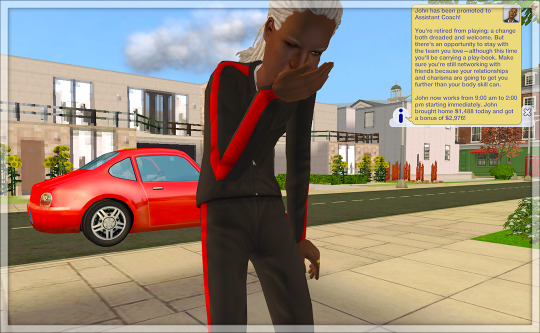
John is doing splendidly at work, although his health is suffering at the moment.
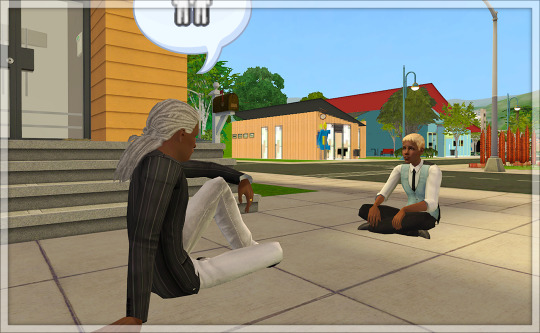
And as always, he has plenty of time for his kids.

However, his wife Caroline has by no means forgiven him for humiliating her so publicly!

And it's all just too much for poor Louisa, to see their parents at each other's throats.

John is banished to the sofa - which won't do his health any good at all.

And, Caroline has no qualms about giving her husband a taste of his own medicine, with old flame Henry.
#sims 2#gameplay#merybury#john willoughby#caroline bingley#louisa willoughby#louie willoughby#henry crawford#willoughby family
14 notes
·
View notes
Text
I’m getting into a fist fight with John Willoughby
#I’m halfway through the book and I want to beat the shit out of him#sense and sensibility#jane austen#john willoughby#s&s#marianne dashwood#she’s so annoying I love her#she deserves much better#elinor dashwood
26 notes
·
View notes
Text
Quarter Finals Master List!
Edward Ferrars (1995) Vs Mr Darcy (1995)
Willoughby (1995) Vs Captain Wentworth (1995)
Colonel Brandon (1995) Vs Mr Bingley (1995)
Mr Tilney (2007) Vs Mr Knightley (2009)
#hotjaneaustenmenpoll#quarter-finals#mr darcy#mr knightley#mr tilney#edward ferrars#captain wentworth#john willoughby#colonel brandon#mr bingley
35 notes
·
View notes
Note
No, my problem w/ S&S is that the building blocks of Companionate Marriage - chemistry, compatibility, conflict-resolution abilities - are repeatedly shat upon to make way for the concept of worthiness. Marianne finding Brandon’s company boring and him sexually repulsive are silly, shallow reasons to not marry him! It’s not like she’s going to spend the rest of her life living in his house and needing to be turned on by his personality or the rest of her life!
I always thought the themes and message of Sense and Sensibility were really clear, sometimes on the nose, even, but apparently they are not.
Appearances deceive, and sometimes, specially when we are young, we are guided by considerations that are shallow, and ideally, as we grow older, our perspective changes and gains nuance. My 7 year old nephew is a great reader, but he likes newly printed books and dislikes old prints. He isn't old enough yet to appreciate the beauty and sort of mystery of a book that has passed from hand to hand and provided comfort, solace and entertainment to several people.
Treating attraction in terms of raw physical beauty is reductive and unrealistic. Our patterns of attraction are influenced by many, many factors, biological, emotional, and intellectual. Saying Marianne's taste could never change is more or less like saying Lizzy's taste could never change and therefore her marrying Darcy is a matter of worthiness and gratitude. Which is ridiculous.
Marianne's marriage is not a matter of gratitude and worthiness, not at a theme level. Willoughby and Brandon represent two ways of being and behaving in relation to others, while having similar inner oriented dispositions towards sentimentality and romanticism, represent radically different ways to relate to others.
Willoughby embodies selfishness and meanness; he's always a "me, first" person, who cannot be bothered to care about anyone else's feelings. He doesn't care for Eliza'a feelings or her family's, and he doesn't even care for Marianne's feelings and her family's. He engages Marianne's affections for fun at first, and even when he is "in love" with her, his money comfort comes first, and his comment upon leaving Sussex is about his own feelings: “It is folly to linger in this manner. I will not torment myself any longer by remaining among friends whose society it is impossible for me now to enjoy.” He is mean to the Barton people for no other reason than his thinking them beneath him. When Marianne is with Willoughby, she also turns into a selfish, mean person; where she at first had compassion for Brandon, now accuses him with Willoughby of lying to them all and making an elaborate ruse to avoid a picnic. She no longer cares about cheering up or talking to anyone on her family with consideration, and refuses to try and compose herself for their sake, or to communicate with them.
Brandon embodies generosity and kindness. In the vein of the famous Mr Rogers' idea that in crises you should look at the helpers, Brandon is always helping as he can, giving of his time, knowledge, and wealth to others, from simple small things like listening to Marianne's playing with respect, helping deviate the conversation when Mrs Jennings and sir John are grilling Elinor, to giving a complete stranger a living just because he feels Edward has been wronged by his family in a cruel way. We are told and shown that he "was on every occasion mindful of the feelings of others".
Marianne not only grows similarly melancholy in her romantic loss, but she also, slowly grows into a more considerate, kind person herself as time passes. She grows to understand and confide in her sister more and more, and to try and be a comfort to her family. Her marriage to Brandon is the joyful conclusion of this arc. They have grown alike in personality, temperament, and ideals; and the fruit of it is restored joyfulness to him, and such love to her as she never thought she could feel again.
Honestly the "this sign cannot stop me because I can't read" attitude towards Austen positively, explicitly saying that Marianne loved Brandon as much as she ever loved Willoughby, and that she was very happy in her marriage is becoming very, very tiresome.
82 notes
·
View notes
Text

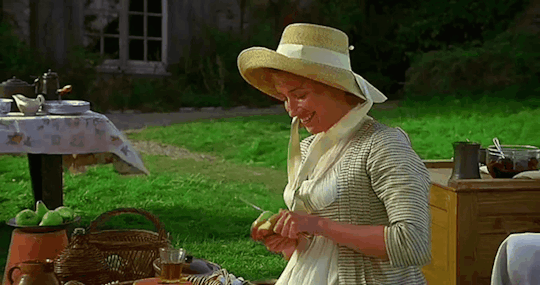



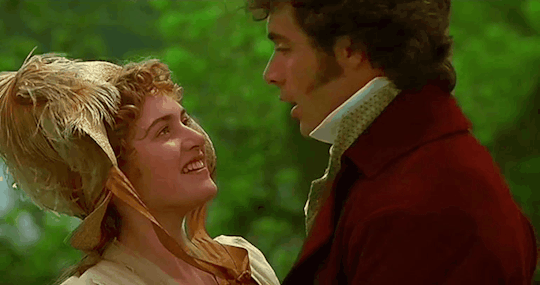



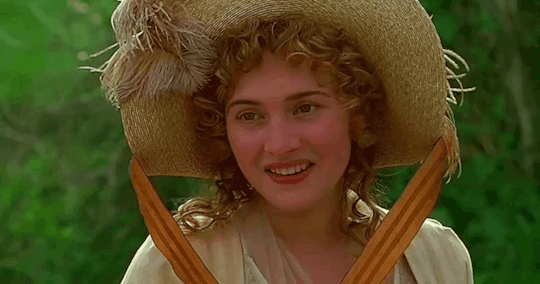
SENSE AND SENSIBILITY (1995)
dir. ang lee
#sense and sensibility 1995#jane austen#costume drama#period drama#perioddramaedit#perioddramagif#elinor dashwood#marianne dashwood#john willoughby#mrs dashwood#margaret dashwood#emma thompson#kate winslet#greg wise#gemma jones#my gifs#mine
72 notes
·
View notes
Text
So many people judge Elinor Dashwood for accepting Willoughby's "apology" (it's really just a sob story where he throws every female in his life under the bus), but she doesn't really forgive him AND she is in a very delicate emotional state and dead tired when it happens. For a full defense, I've taken the quotes that show what Elinor is thinking during Chapter 44-46 of Sense & Sensibility. (This is really long)
He arrives right after Elinor is finally assured that Marianne is going to live, after some very trying moments where Mrs. Jennings was predicting that her sister would die. She is waiting for her mother to arrive, and then he walks in. Her emotional state is intense:
Never in her life had Elinor found it so difficult to be calm, as at that moment. The knowledge of what her mother must be feeling as the carriage stopt at the door—of her doubt—her dread—perhaps her despair!—and of what she had to tell!—with such knowledge it was impossible to be calm.
She is not happy to see him, she only barely agrees to hear him out, she is mostly pissed, "Miss Dashwood, at this point, turning her eyes on him with the most angry contempt" And this is Elinor! Who usually controls her expression of feelings.
Elinor remains pretty annoyed with him throughout:
“I have,” returned Elinor, colouring likewise, and hardening her heart anew against any compassion for him, “I have heard it all. And how you will explain away any part of your guilt in that dreadful business, I confess is beyond my comprehension.”
But as Willoughby goes on, Elinor wavers:
Elinor’s heart, which had undergone many changes in the course of this extraordinary conversation, was now softened again
“You are very wrong, Mr. Willoughby, very blamable,” said Elinor, while her voice, in spite of herself, betrayed her compassionate emotion
She does agree that his explanation at least makes him a slightly better person, but her language is hedged, a lot:
“Yes, you have certainly removed something—a little. You have proved yourself, on the whole, less faulty than I had believed you. You have proved your heart less wicked, much less wicked. But I hardly know—the misery that you have inflicted—I hardly know what could have made it worse.”
And even when she is admitting this, she's going over in her head what could have made him such a terrible person:
Elinor made no answer. Her thoughts were silently fixed on the irreparable injury which too early an independence and its consequent habits of idleness, dissipation, and luxury, had made in the mind, the character, the happiness, of a man who, to every advantage of person and talents, united a disposition naturally open and honest, and a feeling, affectionate temper. The world had made him extravagant and vain—Extravagance and vanity had made him cold-hearted and selfish. Vanity, while seeking its own guilty triumph at the expense of another, had involved him in a real attachment, which extravagance, or at least its offspring, necessity, had required to be sacrificed. Each faulty propensity in leading him to evil, had led him likewise to punishment. The attachment, from which against honour, against feeling, against every better interest he had outwardly torn himself, now, when no longer allowable, governed every thought; and the connection, for the sake of which he had, with little scruple, left her sister to misery, was likely to prove a source of unhappiness to himself of a far more incurable nature.
Now we have the ending:
He held out his hand. She could not refuse to give him hers;—he pressed it with affection.
“And you do think something better of me than you did?” said he, letting it fall, and leaning against the mantel-piece as if forgetting he was to go.
Elinor assured him that she did;—that she forgave, pitied, wished him well—was even interested in his happiness—and added some gentle counsel as to the behaviour most likely to promote it.
So she ends the conversation/whine fest with a lecture on how Willoughby could improve himself! This may be a great example of Christian forgiveness, but she certainly doesn't think he is a good person.
Now Elinor is alone and she reflects on how his charm overcomes her knowledge of his faults:
Willoughby, he, whom only half an hour ago she had abhorred as the most worthless of men, Willoughby, in spite of all his faults, excited a degree of commiseration for the sufferings produced by them, which made her think of him as now separated for ever from her family, with a tenderness, a regret, rather in proportion, as she soon acknowledged within herself—to his wishes than to his merits. She felt that his influence over her mind was heightened by circumstances which ought not in reason to have weight; by that person of uncommon attraction, that open, affectionate, and lively manner which it was no merit to possess; and by that still ardent love for Marianne, which it was not even innocent to indulge. But she felt that it was so, long, long before she could feel his influence less.
and slightly later:
But the rest, which one night entirely sleepless, and many hours of the most wearing anxiety seemed to make requisite, was kept off by irritation of spirits. Willoughby, “poor Willoughby,” as she now allowed herself to call him, was constantly in her thoughts; she would not but have heard his vindication for the world, and now blamed, now acquitted herself for having judged him so harshly before. But her promise of relating it to her sister was invariably painful. She dreaded the performance of it, dreaded what its effect on Marianne might be; doubted whether after such an explanation she could ever be happy with another; and for a moment wished Willoughby a widower. Then, remembering Colonel Brandon, reproved herself, felt that to his sufferings and his constancy far more than to his rival’s, the reward of her sister was due, and wished any thing rather than Mrs. Willoughby’s death.
I think wishing Willoughby a widower is the most damning line here, but the sentence prior make it clear that it is for Marianne's sake, not Willoughby's, that Elinor wishes he was free to marry. And she repents almost immediately. Also, and importantly, Elinor is still not sleeping! So she is still running on anxiety and no sleep when she wishes Mrs. Willoughby dead.
Later, when she does tell Marianne about the encounter a few weeks later, we can see her opinion of Willoughby has definitely soured:
“The whole of his behaviour,” replied Elinor, “from the beginning to the end of the affair, has been grounded on selfishness. It was selfishness which first made him sport with your affections; which afterwards, when his own were engaged, made him delay the confession of it, and which finally carried him from Barton. His own enjoyment, or his own ease, was, in every particular, his ruling principle.”
To summarize: Elinor was tired and emotional when Willoughby arrived and under the influence of his charm, she did begin to think better of him. She did forgive him, but while still dwelling on his faults. When she has time for rest and reflection, and without him present, she thinks more clearly and knows that everything Willoughby did was selfish.
#sense and sensibility#elinor dashwood#john willoughby#willoughby#the confession chapter#jane austen#elinor was tired#Willoughby is very charming#but she never lost sight of his crimes
112 notes
·
View notes
Text
Willoughby: Okay so remember how I broke your sister's heart? Well actually, I only started fucking around with her because I had no real interest in her..
Elinor:

#sense and sensibility#elinor dashwood#john willoughby#liveblog of me reading jane austen if you wanna laugh
109 notes
·
View notes
Text
I just started reading Sense and Sensibility and I'm wondering if Willoughby will make my skin crawl in the book as much as I remember him doing in the 1995 movie
#its been over a decade since ive seen it#so he may not be as bad i remember him being in the movie#sense and sensibility#sense and sensibility 1995#jane austen#john willoughby
16 notes
·
View notes